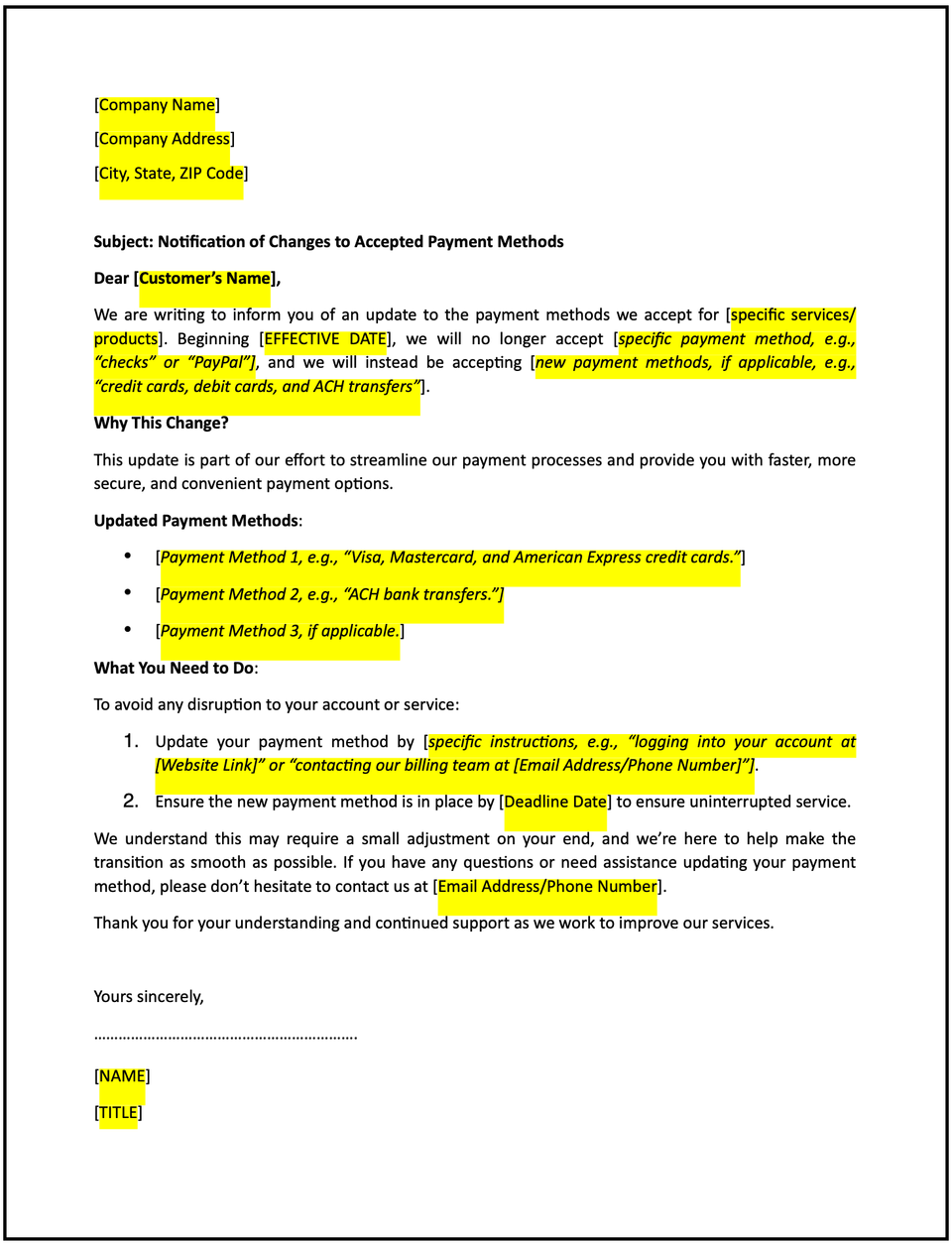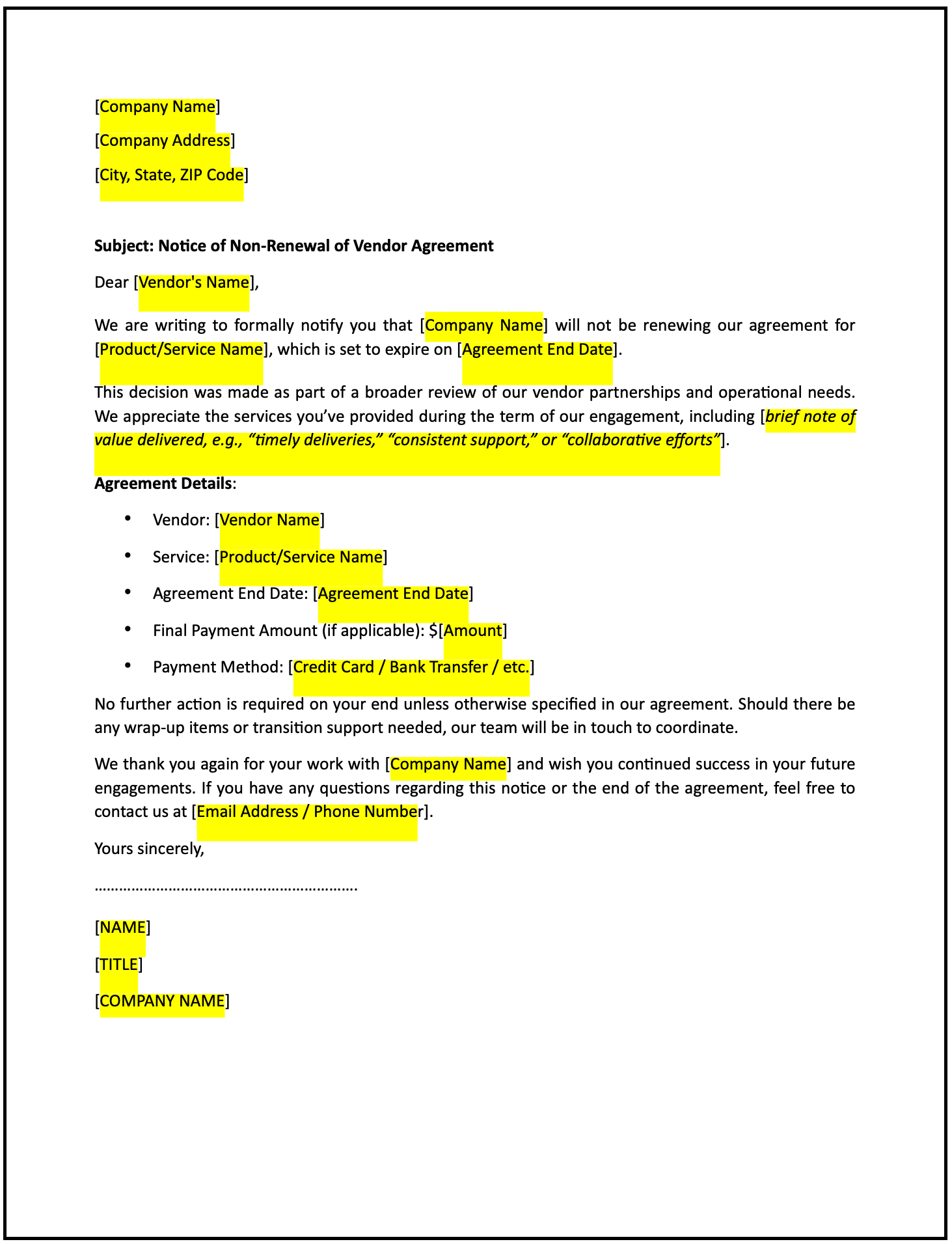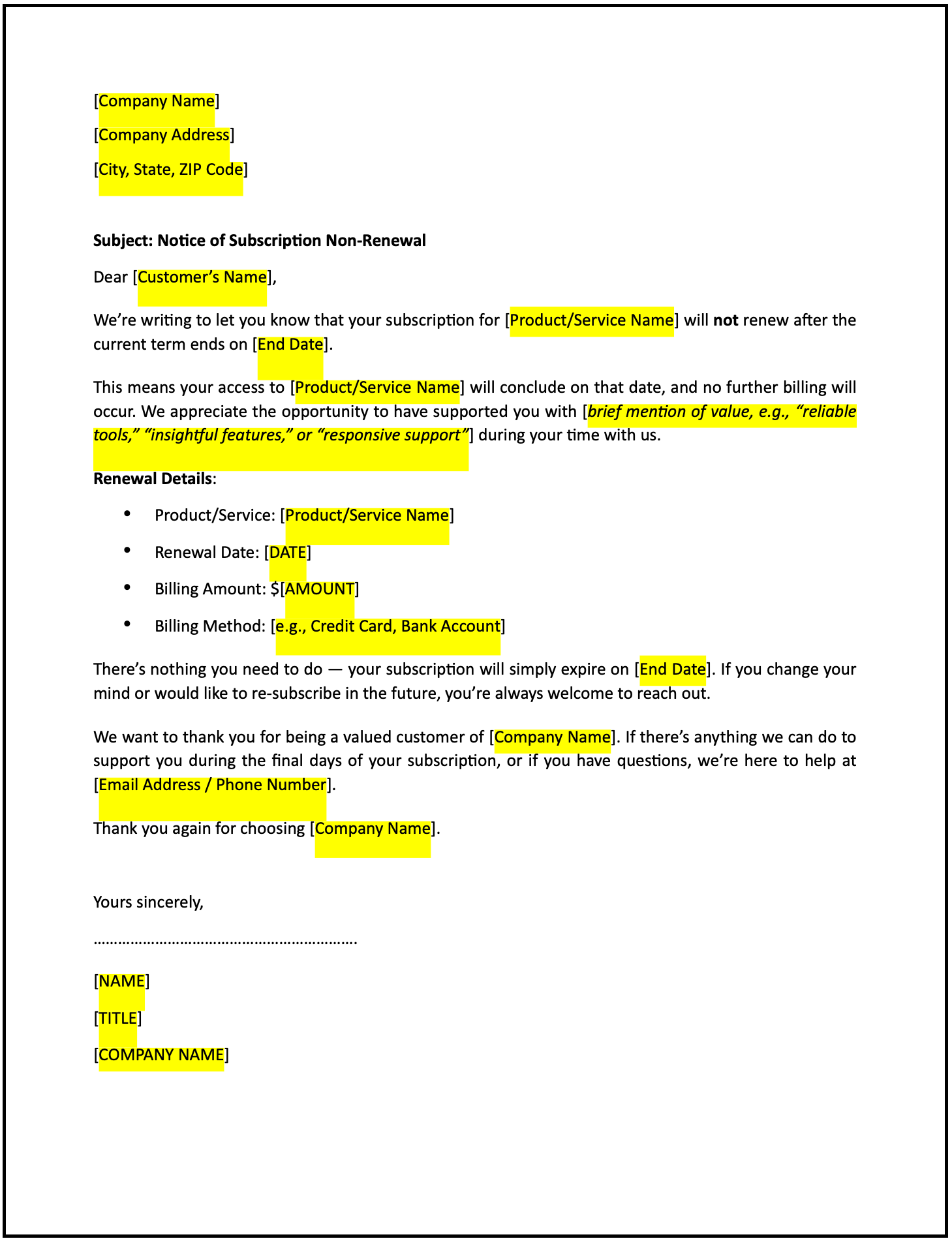Letter of changes to payment methods accepted: Free template

Letter of changes to payment methods accepted
Communicating changes to the payment methods you accept is important for transparency and ensuring a seamless customer experience. This letter provides a professional way to inform customers of the updates, explain the reasons behind the changes, and address any potential concerns.
How to use this letter of changes to payment methods accepted
- Open with appreciation: Begin by thanking the customer for their continued support and engagement.
- Announce the changes: Clearly state the updates to the payment methods, including which methods have been added or discontinued and the effective date.
- Explain the rationale: Briefly outline the reasons for the changes, such as improving security, enhancing convenience, or responding to customer preferences.
- Highlight benefits: Emphasize any advantages the changes bring, such as faster transactions, increased payment options, or enhanced security.
- Offer assistance: Provide details on how customers can contact your support team for questions or to adjust their payment preferences.
- Maintain a professional tone: Ensure the letter is clear, respectful, and customer-focused.
- Invite feedback: Encourage customers to share any concerns or suggestions about the updated payment methods.
Benefits of using a letter of changes to payment methods accepted
This letter template ensures a structured and professional way to communicate payment method updates while maintaining transparency and customer trust. Here’s how it helps:
- Promotes transparency: Clearly communicating the changes demonstrates accountability and builds trust.
- Enhances convenience: Highlighting new or improved payment options ensures customers understand the benefits.
- Maintains professionalism: A well-crafted letter reflects positively on your brand’s communication standards.
- Reduces confusion: Providing specific details prevents misunderstandings or potential payment disruptions.
- Strengthens relationships: Proactive communication fosters loyalty and confidence in your service.
Tips for writing an effective letter of changes to payment methods accepted
- Be specific: Clearly outline which payment methods are affected, including those being added or discontinued.
- Use professional language: Maintain a respectful and straightforward tone to ensure customers feel informed.
- Focus on customer benefits: Emphasize how the changes will improve the payment experience.
- Provide clear instructions: If customers need to take action, such as updating payment preferences, include simple, actionable steps.
- Keep it concise: Focus on the key points without overwhelming the customer with unnecessary details.
Frequently asked questions (FAQs)
Q: What details should I include in this letter?
A: Include a summary of the changes, the effective date, the reasons for the updates, and any required customer actions.
Q: Should I personalize the letter?
A: While not always necessary, addressing the customer by name can add a personal touch and increase engagement.
Q: Who typically receives this letter?
A: Send the letter to all customers who might be impacted by the changes in accepted payment methods.
Q: How formal should this letter be?
A: The tone should be professional yet approachable to ensure clarity and maintain a positive relationship.
Q: When should this letter be sent?
A: Send the letter well in advance of the changes to give customers ample time to adjust.
Q: Can this letter include promotional offers?
A: Yes, including an offer, such as a discount for using a preferred payment method, can encourage compliance and ease the transition.
Q: Is acknowledgment from the customer required?
A: While not required, providing contact information for questions or feedback ensures clarity and support.
This article contains general legal information and does not contain legal advice. Cobrief is not a law firm or a substitute for an attorney or law firm. The law is complex and changes often. For legal advice, please ask a lawyer.


